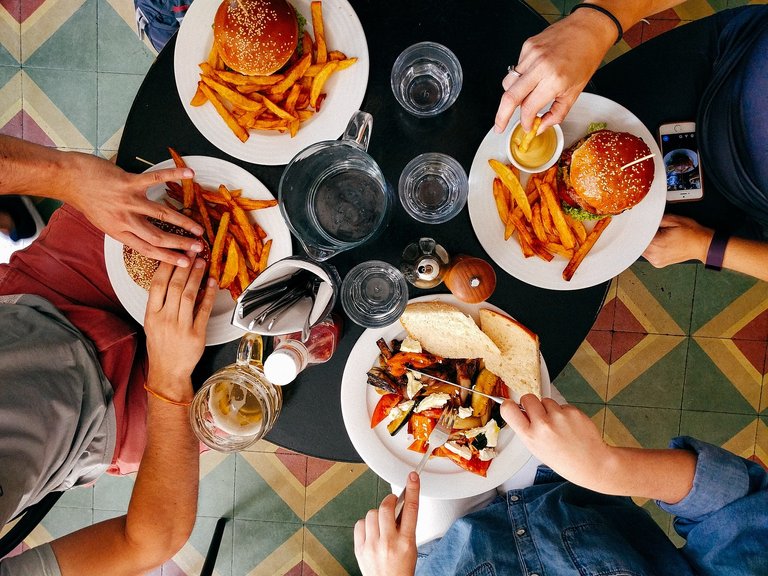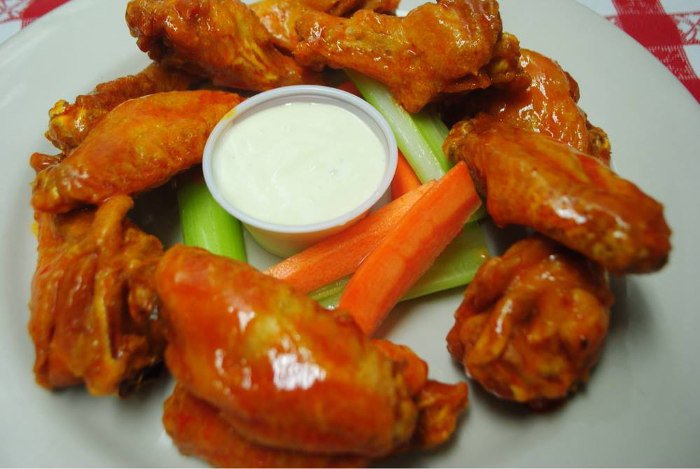
When it comes to some of the common activities that we engage in throughout the day, like driving and eating for example, quite often our mind isn't focused on the activity that we are engaged in at the moment.
Instead of focusing on the task that we are presently engaged in, our mind drifts off and we start to ponder a variety of other topics; yet we are still able to successfully carry out the task we're engaged in.
For much of the time, we go through life as if we were on autopilot, because we aren't actively aware and thinking about what we are doing in the moment. Researchers have suggested that perhaps more than 46 percent of the time, we are engaged in mind wandering and not focused on the task that is at hand.
For many of us, we consume a great deal of our meals either on the go or sitting down in front of the television or computer, and we will often be focused on other tasks rather than focusing on the activity of eating.

Researchers suggest that be redirecting our focus back to the activity of eating, away from mindless eating and toward engaging in mindful eating, that it can empower people by enabling them to make better and more conscious decisions about what they eat and how much of it they are eating.
A variety of studies have been conducted which have sought to shed some light on the prevalence of 'mindless eating' that many of us engage in and results suggest that what we see plays a big part in the experience; if we don't see how much we've eaten then our brain might not register that we're full.
For example,..
going to the movies is a very common opportunity were most people are going to overeat. One previous study in this area found that when participants (who were attending a movie) had been given bigger buckets for their popcorn, that they were likely going to eat more.
Even if that popcorn was stale, about 2 weeks old, they were still found to eat more.

If you go out for wings and the bones are taken away from the table, researchers have found that people will likely eat 34 percent more chicken wings. When the bones are left on the table, it's a visual reminder to the people about how much they have already eaten; so they're less likely to eat more because they underestimate how much they've already consumed.
And researchers have found that it isn't only when we go to the movies or when we go out with friends for wing night that we are going to be engaged in overeating or 'mindless eating'. We also tend to do it when we are watching something while we eat, or reading something, talking to our loved ones or friends, etc.

Mindful eating exercises have sprung up in a number of communities, where many people are trying to rededicate their focus to engaging in the task at hand and being fully aware of just what and how much they are eating; when they are eating it.
Mindfulness eating exercises try to help people bring their focus back to the food rather than wandering off to a myriad of other topics and activities.
Studies have found that when engaging in mindful eating that people will sometimes be less likely to overeat. It's no surprise then that this eating method has also been suggested to help boost weight loss success and provide better overall health. Many who have been engaged in this eating practice have insisted that it prompts them to make better food choices for themselves rather than engaging in their typical binge eating behavior.
Some tips for mindful eating have been suggestions like taking the time to pause and breathe while enjoying your meal, focus on the smell and the taste of the food, and remove any distractions when you are eating.

Pics:
Pixabay
South Park via Giphy
Lebro’s via stepoutbuffalo.com/buffalo-born-classic-on-a-budget-wing-nights-in-wny/
Pinterest via pinterest.com/vikki52500/simpsons/?lp=true
The information that is posted above is not intended or implied to ever be used as any substitute for professional medical advice, or diagnosis or treatment. The above is posted for informational purposes only.
Sources:
http://www.huffingtonpost.co.uk/2014/09/26/families-eat-together-tv-eating-habits-brits_n_5886398.html
http://home.bt.com/lifestyle/health/diet/5-mindful-eating-practices-that-will-transform-the-way-you-eat-11364201837151
http://calgaryherald.com/health/diet-fitness/mindful-eating-for-health-and-meal-satisfaction
https://www.sciencenewsforstudents.org/article/mindfulness-eating-pays-body-big-dividends
https://www.psychologytoday.com/blog/your-brain-work/201011/new-study-shows-humans-are-autopilot-nearly-half-the-time
Related Posts:
Increasing Numbers Turning To Mindfulness
https://steemit.com/psychology/@doitvoluntarily/increasing-numbers-turning-to-mindfulness
Meditation Can Alter Your Genes
https://steemit.com/yoga/@doitvoluntarily/meditation-can-alter-your-genes
Meditation Can Help You To Handle Stress: Study
https://steemit.com/science/@doitvoluntarily/meditation-can-help-you-to-handle-stress-study
Next we will have the food police. Thanks for a thought provoking post. 🐓🐓
This was very thoughtful, and fun to read and the food makes me hungry yum!
Me too!!!
Personally, it's been a while since I no longer eat in front of the TV, I have laid out a space that I dedicated to the food away from the computer and TV and since then I feel that I eat well and I know what I eat.
Why couldn't I have read that before the three servings of dried mango I inhaled while reading previous articles? The sad thing is that I barely remember tasting any of it. Thank you for this friendly reminder to un-zombie my eating routines.
Very zen. My zen has slipped over the years, I need to get back on track. Appreciate the motivation, thanks,
enjoying life to the fullestt is also enjoying each of our experiences for 100%
eating is a really good example of this, excellent point and well written
you have given me some "food for thought"
steem on
Outstanding post. Mindfulness has been one of my main goals for this year. I appreciate this article to help us focus on mindfulness eating. Thank you for sharing this information.
I enjoyed reading your post. Thanks
great work... i upvoted you plz upvote me ??
Agreed. I have to admit we have fallen into the habit of distracted eating in our home. Eating in front of the computer is my main vice. My wife likes to talk about anything and everything while she eats (God, hope she's not reading this!). But, we could be eating dog food and not notice it. Much wisdom in this article, as well as a challenge.
nice post my friend, i like your post
This is so true.
You only have to go to the cinema and be unlucky enough to have to sit next to one of those mindless people just chomp, chomp, chomping the whole way through the film to know!
We've been trying to have more family meals in our house, where we sit down to eat together and engage with each other. It's not quite mindful eating, but I think it's a step closer to "being in the moment." That said, I'm finding it really difficult to make the transition away from eating in front of the TV. I love my family to pieces, but it takes work to give up your downtime at the end of the day -- when you can pretty much shut your brain off -- and instead find the energy and brain power to really focus on the people around you and the food in front of you.
I enjoy my food, and as a chef, I want to analyze and experience all of the texture and flavors, so I eat very slow and with purpose, just a weird guy, I guess, LOL, and I am now following you as I think we have much in common
I so agree with mindful eating. Not only that it I could better myself with what I was eating, but I started to really enjoy eating, tasting, experiencing different flavours, textures etc. Eating became an adventure, rather than a necesity to stay alive. How cool is that? 3 times, maybe for some even more times a day of pleasure, instead of "Oh, I need to eat, dont have time!".
It is important to focus on the quality of the food, not on quantity. Also, the size of the portions has an important role. If in childhood parents taught us to eat everything from the plate to grow healthy, today, this principle is not longer applied because we get fat. So we should be careful both on what we eat and how much we eat.
I'll tell you the truth. I don't even have a kitchen table in my house or any tables at all. I just have my computer so when I eat I eat in front of it.
This moment is a gift, that's why the call it present moment. Let's enjoy live in the here and now.
We as a people would be alot thinner of we were mindful as we ate you are correct there I agree with what you put, watching tv and eating has made me put on weight
How true..similar to the popcorn bucket size, the larger our dinner plates, the more we tend to eat. Simply changing the plate or bowl size can play quite a good role in minimizing the amount of food consumed even 'mindlessly' ;)
i like your post, was funny to read it! good work!!
Very good article. I just recently decided to start this pratice myself. I had been in the habit of eating while reading. More particularly I was reading news.
Started to think about the fact that what we look at is a type of food too. And decided to het back to focusing on the food I was ingesting.
It's been a couple weeks now and I honestly think my digestion is better. My mood certainly is.
Thanks for posting.
It is said we should chew the food for 32 times for proper digestion but due to unconsciousness we do not chew like this and swallow it as whole so it creates many problems in our stomach. Being in the present moment is the gist of all your post.
Great info, very practical stuff straight from the Buddhists.
Another great tip for not overeating is the Buddhist monk, daily mini-fasting; where ya don't eat during 18 hours everyday.
I don't have science to back this up but I suspect we absorb vitamins and nutrients and digest better when we appreciate the meal as we are eating. Sound crazy?
We have so many resources, that food is such a non-issue,that we distract ourselves with other things like TV and phones. This seems even more ridiculous when you think that until about 200-300 years ago, most of the people lived in scarcity, famine were common, and agricultural productivity was not even close to fulfilling the needs of the population.